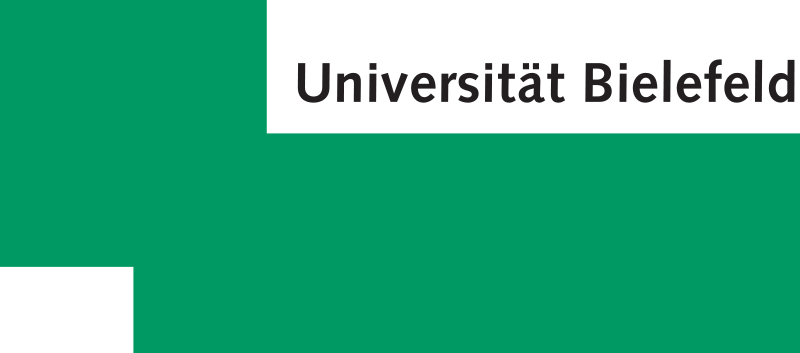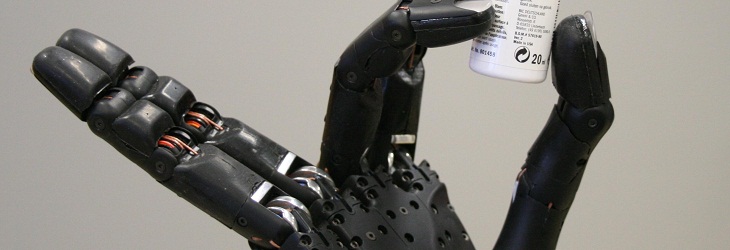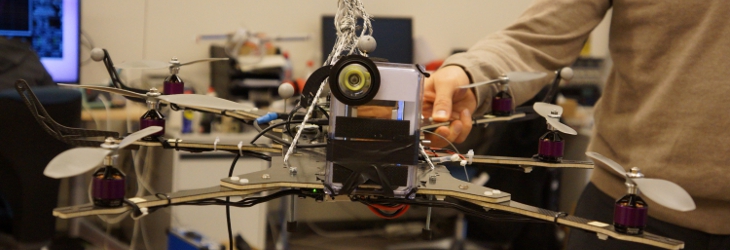
Bielefeld University - Research Institute for Cognition and Robotics
About us
What are the basic building blocks of cognition and learning? How can we endow robots with some social competence, to make them acceptable as assistants to humans? How can machines communicate smoothly and on semantic levels with humans? Such important yet unsolved key questions have been guiding Bielefeld researchers in the key area of Intelligent Systems for many years. In order to face the enormous challenges implied by such question for robotics, the “Research Institute for Cognition and Robotics” (CoR-Lab) was founded at the Bielefeld University in July 2007 under main participation of the research groups Neuroinformatics (Prof. H. Ritter, PD Dr. J. Steil) and Applied Computer Science (Prof. G. Sagerer), who are widely known for their work in artificial cognition, computer vision, neural networks and robot learning. The aim of the CoR-Lab is to establish a center in an important field of high-technology in the region Ostwestfalen-Lippe. It is meant both to support the domestic medium-sized economy and to strengthen Bielefeld University in its main focus area Intelligent Systems.
The network of innovation OWL MASCHINENBAU targets to strengthen the economic and technological power of the regional industry in production technology. It is an association of local industry, SME, and research institutions of the region East-Westphalia that with 272 companies, more than 42.000 employees, and more than 8 Billion EUR revenue is one of the strongest clusters of production technology even on international scale. It targets to transfer research to application in industy, to initiate cooperative networks, to organize advanced training, and generally to enhance the competitive strength of its members.
What motivates us
Bielefeld University has developed the laboratory prototype that is the starting point for the MoFTaG proposal. We envision an assisting system as third hand in small-series productions and prototype constructions which require frequent changes and adaptations of processes. The ECHORD program can support us in transforming our laboratory prototype into a ready-to use, flexible, redundant robotic system that can be trained by naive users and avoid obstacles when autonomously generating movements. This result implies several breakthroughs in intuitive training, transformation from theoretical, experimental method to concrete industrial application scenarios, and flexible reconfiguration of a robotic work cell. Our general idea is to use physical interaction with a human tutor as an intuitive way to teach valid areas in constrained working places and corresponding robot postures. This raises a lot of questions like: Is such a physical MMI actually intuitive? How exhausting is the work with the robot arm? Is the reconfiguration of the robot practicable? How well and how fast can it be done? What are the characteristics of the training data provided by the naive users of the system? And so on. One big impact of the ECHORD funding is already the fact that we were able to conduct successfully a first large study with workers from a company with small-series productions that could be future users of such assisting robot arms.
The CoR-Lab is a member of the OWL MASCHINENBAU association and collaborated before to present the laboratory prototype used in this experiment on the Hannover fair and Automatica fair 2010. This dissemination activity will be continued at Hannover fair 2013. OWL MASCHINENBAU cooperates with Bielefeld University in dissemination of the results to the manufacturing and production technology industry through organization of joint booth on industry fairs and transfer workshops. Dissemination and transfer of research results to industry is the main occupation of OWL MASCHINENBAU.
s
How to contact us
Bielefeld UniversityFaculty of TechnologyApplied InformaticsDr.-Ing. Agnes SwadzbaUniversitätsstraße 21-2333615 BielefeldGERMANY+49 521 106 2936








